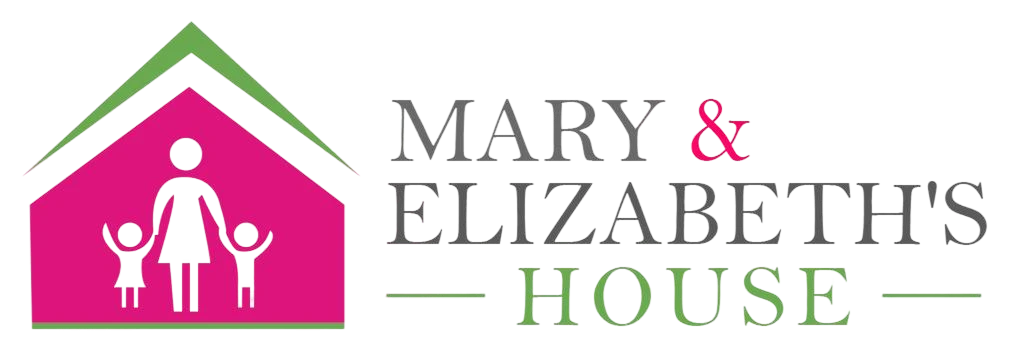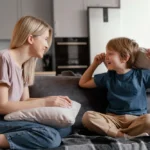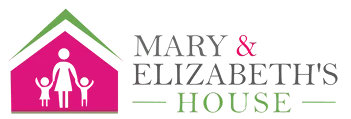The Foundation of Lasting Change
When a woman enters Mary and Elizabeth’s House, she brings her children, her experiences, her strengths, and her wounds. True transformation is not just about providing a roof over her head—it’s about rebuilding the foundation of everyday life. At Mary and Elizabeth’s House, we believe that life skills training plays a vital role in helping women reclaim autonomy, stability, and confidence. While safe housing provides immediate relief, life skills empower families to navigate independent living with clarity and resilience.
Recovery from homelessness is not linear. It unfolds in moments—cooking a meal for your children, managing a household budget, setting boundaries with difficult family members, or preparing for a job interview. These may seem like simple tasks, but for many women who have experienced trauma, domestic violence, or prolonged instability, these basics can feel overwhelming or foreign. That’s why teaching comprehensive life skills is integral to our transitional housing program. It reintroduces structure, builds self-efficacy, and restores a sense of normalcy for both mothers and children.
At Mary and Elizabeth’s House, we meet each woman where she is. Whether she’s relearning how to establish routines while parenting alone or confronting anxiety about finding employment, our program provides a compassionate and structured environment to build these essential capabilities. Life skills training becomes the bridge between crisis housing and independent living. It’s how transformation becomes sustainable.
Why Women Experiencing Homelessness Need Specialized Life Skills Support
Women experiencing homelessness often face unique challenges that require tailored approaches to skill building. Many have survived domestic violence, leaving them to rebuild not just their housing situation but their sense of safety and self-worth. Others have experienced job loss, medical crises, or family emergencies that disrupted their stability. Some are young mothers who have never had the opportunity to develop independent living skills.
The path to homelessness frequently involves periods where normal routines and self-care practices were impossible. A woman fleeing an abusive relationship may have had no control over finances or household decisions. A mother dealing with medical emergencies may have fallen behind on basic tasks like budgeting or home organization. A young parent may have never learned essential skills like meal planning or conflict resolution.
Life skills training tailored for women transitioning from homelessness considers this reality. It doesn’t just teach time management or job-seeking strategies—it validates the emotional barriers that come with those tasks and addresses the trauma that may interfere with learning. A woman who has experienced instability may struggle with planning ahead or trusting her own decisions. One who has survived domestic violence might find it difficult to advocate for herself or set boundaries.
We recognize that many women in our program struggle with self-worth after experiencing homelessness. Learning practical skills in a supportive, non-judgmental environment helps rebuild confidence. It reinforces the belief that she is capable, valuable, and worthy of a stable, healthy life for herself and her children.
Core Areas of Our Life Skills Program
At Mary and Elizabeth’s House, our life skills training covers the essential areas women need to maintain independent housing and build thriving families. While each woman’s journey is unique, there are foundational skills we emphasize because of their impact on long-term stability and success.
Financial Literacy and Budgeting forms the cornerstone of independent living. Many women in our program have never controlled household finances or have experienced financial abuse. We teach practical budgeting, bill management, banking basics, and how to build credit. Women learn to plan for expenses, save for emergencies, and make informed financial decisions that protect their family’s stability.
Parenting and Family Management skills help strengthen family bonds while building confidence in solo parenting. Topics include positive discipline techniques, child development understanding, creating family routines, and accessing community resources for children. We also address how to talk with children about their housing journey and help them adjust to stability.
Employment Readiness and Professional Development prepare women for economic independence. This includes resume writing, interview skills, workplace communication, professional wardrobe building, and job search strategies. We also focus on workplace rights and how to advocate for fair treatment and advancement opportunities.
Communication and Relationship Skills help women build healthy connections and advocate for themselves and their families. This includes assertiveness training, conflict resolution, boundary setting, and how to build supportive community networks. Many women also work on healing from relationship trauma while learning to recognize healthy versus unhealthy relationship patterns.
Home Management and Organization creates the foundation for family stability. Women learn meal planning and nutrition, household organization systems, basic maintenance and repair skills, and how to create a nurturing home environment. These skills help transform a house into a true home where families can thrive.
Rebuilding Life After Crisis
For many women entering our program, life has been in survival mode. Days may have been focused solely on finding shelter, food, or safety. Future planning may have felt impossible when basic needs were uncertain. Shame, overwhelm, and exhaustion often accompany the transition to stable housing.
Our life skills program offers a gentle reset. It reminds women that they are not broken—they are strong survivors who deserve support and the opportunity to rebuild. This process acknowledges that experiencing homelessness is not a personal failure but often the result of systems that failed to provide adequate support when it was needed most.
Recovery from housing instability is a chance to reimagine family life. It’s not about achieving perfection; it’s about building sustainable patterns that support long-term stability. Women start with small, manageable goals—creating a morning routine with their children, preparing a weekly meal plan, or setting up a simple budget. Over time, these small steps lead to transformation.
Having a consistent, encouraging environment during this rebuilding process is crucial. At Mary and Elizabeth’s House, our team guides each woman through these challenges with understanding, respect, and recognition of her inherent strength. No step forward is too small to celebrate. No setback is insurmountable when met with the right support.
Building Emotional Resilience Through Practical Skills
The connection between life skills and emotional stability is profound. When a woman can effectively manage her household, communicate her family’s needs, and maintain routines, she is better equipped to handle stress and unexpected challenges. Life becomes less reactive and more intentional.
These skills also reduce the likelihood of returning to housing instability. When crises arise—medical emergencies, job loss, or family conflicts—women with a strong foundation of coping strategies and practical skills are more likely to navigate challenges without losing their housing. They learn that they can tolerate uncertainty while taking concrete steps to address problems.
Resilience is not something women either have or don’t have—it is built through experience, support, and skill development. Life skills training provides one of the strongest foundations for this resilience. A woman who believes in her ability to manage her household and advocate for her family is more likely to maintain housing stability, pursue educational or career goals, and create the life she envisions for her children.
Strengthening Family Bonds and Community Connections
Healthy relationships are essential for long-term stability, but many women in our program have experienced relationships marked by control, abuse, or instability. Life skills training helps them build and maintain healthy connections through improved communication, boundary setting, and trust-building techniques.
Many women have never learned how to express their needs clearly or how to ask for help without shame. They may have been taught that their role is to give endlessly to others or that seeking support is a sign of weakness. Through training and practice, women begin to understand that healthy relationships involve mutual respect, clear communication, and shared responsibility.
As women develop these relationship skills, they also learn how to build supportive community networks. They discover how to connect with other parents, find mentors, and access community resources. They learn to surround themselves with people who support their growth rather than undermine their progress.
For mothers, these skills directly impact their children’s wellbeing. Children benefit enormously when their mothers can communicate effectively, set appropriate boundaries, and build positive community connections. These skills model healthy relationships for the next generation while creating a network of support for the entire family.
Preparing for Independent Living
One of the most important aspects of our life skills program is its focus on real-world application. Women don’t just learn concepts—they practice skills until they become natural habits. Mary and Elizabeth’s House integrates realistic scenarios into daily life at our facility. Women practice managing household budgets with actual expenses, prepare meals for their families, resolve conflicts with housemates, and navigate community resources.
This practical approach ensures women feel prepared for independent housing. Whether moving into their own apartment, reuniting with family, or transitioning to permanent supportive housing, they leave our program feeling equipped rather than anxious. They don’t graduate feeling uncertain about their abilities—they graduate knowing they have the tools to succeed.
Our commitment extends beyond the transition period. Through our follow-up support and community connections, women can continue practicing these skills with ongoing encouragement. We recognize that building new habits takes time and that having supportive community makes all the difference in maintaining positive changes.
Life Skills as Self-Empowerment and Legacy Building
Learning life skills through our program is not just about individual stability—it’s an act of empowerment that creates ripple effects for generations. It represents the process of reclaiming control, recognizing inherent worth, and building a life rooted in dignity and self-respect. For many women, this represents a radical shift from survival mode to intentional living.
This empowerment influences every area of life. It changes how women parent their children, pursue opportunities, manage stress, and engage with their communities. It becomes a source of pride, motivation, and strength that extends far beyond housing stability. The transformation is no longer just about avoiding homelessness—it becomes the foundation for creating the life they envision for their families.
For children in our program, watching their mothers grow and succeed provides powerful modeling. Children see their mothers setting goals, solving problems, and building community connections. They experience stability, routine, and hope. These children are more likely to develop strong life skills themselves and to believe in their own potential for success.
Mary and Elizabeth’s House: Your Partner in Transformation
Our commitment to supporting women and families extends far beyond providing temporary housing. We recognize that sustainable change requires comprehensive support that addresses both immediate needs and long-term goals. Life skills training at Mary and Elizabeth’s House is not an additional service—it is central to our mission and woven throughout every aspect of our program.
Our approach is tailored to meet each woman exactly where she is in her journey, providing compassionate, individualized support that honors her strength and recognizes her potential. Whether you’re just beginning to rebuild after a housing crisis or working toward specific goals for your family’s future, we are here to walk alongside you.
Every woman deserves the opportunity to build a stable, thriving life for herself and her children. At Mary and Elizabeth’s House, we believe that with the right support, skills, and community, transformation is not just possible—it is inevitable.
If you or someone you know could benefit from our transitional housing and life skills program, we encourage you to reach out. Our doors are open, and our community is ready to welcome you home.
Contact Mary and Elizabeth’s House:
Phone: 786-373-7899
Email: info@helpmary.org
Address: Mary & Elizabeth’s House, 2200 N Commerce Pkwy, Suite 200, Weston, FL 33326
Learn more about our programs, volunteer opportunities, and ways to support families in transition at https://helpmary.org/



